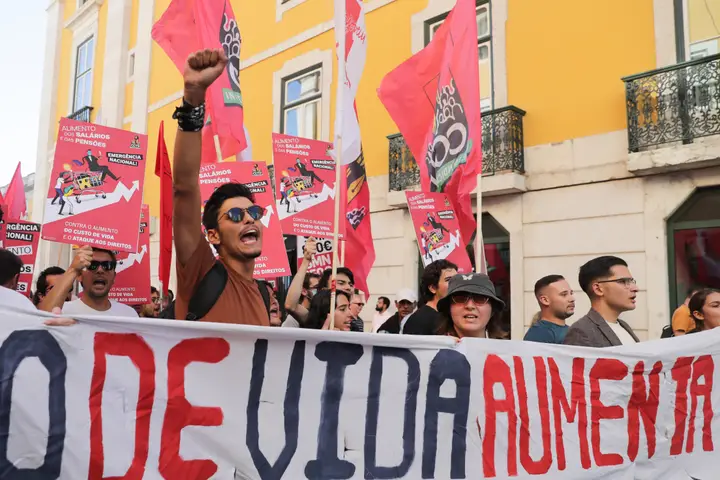Length of service to be recovered between September 2024 and July 2027
The first teachers’ syndicate – FNE (standing for national education federation) – has announced an agreement with the government over recovery of teachers’ ‘frozen’ length of service.
“It took a long time, but to good effect”, explains FNE general secretary Pedro Barreiros in a statement just released. “We have reached an agreement on the possibility of recovering all of the frozen service time, 2,393 days, phased in over 599 days on 1 September 2024 and 598 days over the following three periods, 1 July 2025, 1 July 2026 and 1 July 2027”.
Under these arrangements, teachers will receive 50% of their total length of service (frozen during the Troika years) in the first two years and 10 months, and all frozen time will be recovered (something the last prime minister, António Costa, said could never happen).
“We have obtained a guarantee that all teachers targeted by the freeze will be exempt from the 5th and 7th step access vacancies” which will occur “on the date that teachers meet the conditions”, Barreiros added – stressing this has been almost 20 years of struggle, in which the motto “we haven’t given up” has won through, “achieving all our objectives with regard to the recovery of length of service”.
It now remains to be seen whether the other (numerous) teachers’ associations and syndicates follow suit (see update below).
The agreement followed a three hour meeting between FNE and the education ministry today. Further meetings this afternoon are scheduled with FENEI (national federation of education and investigation), SIPE (independent syndicate of teachers and educators), FEPECI (Portuguese federation of teaching, cultural and education professionals), SPLIU (syndicate of teachers licensed by universities and polytechnics), SNPL (national syndicate of licensed teachers), ASPL (the syndical assocation of licensed teachers), SIPPEB (the syndicate of basic education teachers and educators), SEPLEU (the syndicate of licensed educators and teachers for schools of higher education and universities), Pró-Ordem and S.T.O.P. (syndicate of all teaching professionals).
The final meeting due to take place is with FENPROF (the national federation of teachers).
UPDATE: The day ended with a total of eight syndicates accepting the terms of Portugal’s government. FENPROF “wants more” (basically it wants assurances which cover teachers who are retiring this year/ next, and thus do not fill the criteria for frozen years being returned to them), but FENPROF’s refusal to sign the agreement does not change anything: the nation’s teachers have succeeded in winning what they were told countless times they could not win, and for this reason the result is being hailed as “historic” by some, and “very important” by leader writers who query why none of this was possible with the last administration. “This agreement is a notable conquest for a recently arrived minister and government, overcoming on an important social front political weaknesses that stem from its minoritial nature”, wrote Eduardo Dâmaso, deputy editorial director of Correio da Manhã, on Wednesday.




















